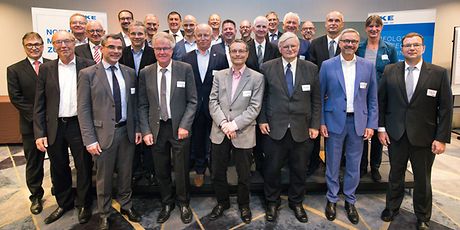After a two-year abstinence, a large part of the invited standardization community attended the DKE Innovation Campus in person. It was held as a hybrid event this year for the first time.
Inspired by the vision of an All Electric Society, the participants learned and discussed the fact that integrated energy on the electricity and heating markets is particularly about understanding data across markets, exchanging data and making data interoperable.
At the end of the day, there was agreement that the energy transition represents a transformation of society as a whole, and that digital standards are an important building block when it comes to overcoming the boundaries of organizations and industries.

















